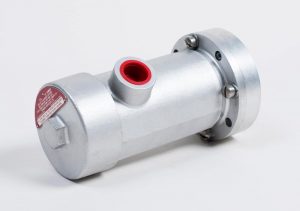Innovations in Metal Castings: advanced techniques for engineering projects
Wiki Article
The Important Uses Aluminum Foundry in Numerous Industries and Their Effect
Aluminum factories act as a crucial resource within various industries. Their lightweight and durable materials substantially enhance efficiency in automobile, aerospace, building, and electronic devices sectors. As each market leverages aluminum's distinct properties, they likewise add to sustainability initiatives. This multifaceted impact motivates a much deeper exploration of just how Aluminum formed these fields. What details innovations and advantages emerge from its usage?Automotive Industry Applications
The automobile market progressively depends on Aluminum Foundry applications to enhance vehicle performance and performance. Light weight aluminum's light-weight nature adds significantly to sustain economic situation, making it a recommended option for producers intending to minimize discharges and improve general vehicle dynamics. Elements such as engine blocks, transmission real estates, and wheels are commonly created via Aluminum casting processes, permitting elaborate designs that meet strenuous safety and efficiency criteria.
Aerospace Innovations

The use of aerospace-grade Aluminum alloys improves resistance to deterioration and fatigue, crucial for the demanding atmospheres airplane face. Technologies in additive manufacturing additionally enable fast prototyping and customization of components, reducing lead times and costs.
Building and construction and Infrastructure
While the construction and infrastructure markets continue to evolve, Aluminum factories are significantly recognized for their contributions to contemporary structure methods. Light weight aluminum's light-weight nature and high strength make it an excellent product for different architectural applications. Foundries supply elements such as beam of lights, frames, and facades that enhance the durability and longevity of buildings and framework jobs.In addition, aluminum's deterioration resistance plays a crucial duty in expanding the lifespan of frameworks exposed to harsh ecological problems. The power performance of Aluminum products likewise straightens with sustainable building initiatives, adding to lower energy usage in construction. In addition, cutting-edge casting methods have broadened the design possibilities, permitting architects and engineers to create visually pleasing yet useful frameworks.
Electronics Manufacturing
Aluminum foundries play a significant function in the electronic devices manufacturing market, where the need for thermally conductive and lightweight materials is extremely important. Aluminum Castings. Elements such as warm sinks, housings, and braces are usually created making use of Aluminum because of its excellent thermal buildings and ability to dissipate warmth successfully. This is important in digital devices, where getting too hot can lead to failure and decreased performanceThe versatility of Aluminum enables complex designs and specific machining, which are crucial in contemporary electronic devices. In addition, aluminum's non-magnetic residential or commercial properties make it ideal for applications in delicate digital tools, decreasing interference. Aluminum's resistance to corrosion improves the longevity of digital elements, ensuring durability and reliability.
Sustainability and Reusing Initiatives
Provided the increasing focus on ecological responsibility, the Aluminum Foundry market has made substantial strides in sustainability and reusing efforts. Aluminum is inherently recyclable, permitting shops to reclaim and recycle material with minimal power expense compared to main manufacturing. This closed-loop recycling process not just minimizes waste however also lowers greenhouse gas discharges, adding to an extra sustainable production model.Moreover, lots of foundries are embracing energy-efficient technologies, including eco-friendly energy sources, to power their procedures (Metal Castings). This change not just decreases reliance on nonrenewable fuel sources yet additionally improves general operational performance
Market collaborations are further advertising lasting practices, such as sharing ideal methods and establishing cutting-edge reusing methods. By focusing on these efforts, the Aluminum Foundry field is placing itself as a leader in sustainable production, straightening with international targets for sustainability while meeting the needs of numerous markets.

Often Asked Concerns
What Are the Key Benefits of Utilizing Aluminum in Foundry Processes?
The key benefits of making use of Aluminum in Foundry processes include its light-weight nature, exceptional corrosion resistance, high thermal and electric conductivity, and convenience, enabling elaborate layouts and efficient recycling, ultimately enhancing general production performance and lowering prices. - Wisconsin Aluminum FoundryJust How Does Aluminum Foundry Impact Product Lifecycle Monitoring?
Aluminum Foundry considerably enhances item lifecycle management by allowing reliable material use, reducing waste, and helping with recycling. Its light-weight residential or commercial properties improve transport effectiveness, while resilience prolongs item life expectancy, inevitably adding to sustainability and cost-effectiveness in manufacturing.Are There Specific Challenges in Aluminum Foundry Manufacturing?
Details obstacles in Aluminum Foundry manufacturing consist of handling temperature level control, making sure material top quality, decreasing waste, and adjusting to fluctuating market demands. These elements can impact performance, cost, and general competition within the sector.What Precaution Are Vital in Aluminum Foundry Operations?
Crucial precaution in Aluminum Foundry operations consist of personal safety tools, appropriate ventilation, regular tools maintenance, risk interaction, and emergency situation reaction training. Executing these practices guarantees employee security and reduces threats connected with high-temperature metal processing.Exactly how Does the Cost of Aluminum Contrast to Various Other Metals in Foundry Use?
The cost of Aluminum is usually less than that of metals like copper and titanium, making it a cost-efficient option for several Foundry applications. This affordability contributes to its extensive use across various sectors.Aluminum shops offer as an important source within various industries. The automobile industry progressively depends on Aluminum Foundry applications website to enhance lorry performance and efficiency. The material's recyclability also lines up with the market's push in the direction of sustainability, as recycled Aluminum requires significantly less energy to process compared to key aluminum. Aluminum shops play a substantial duty in the electronics making market, where the need for thermally conductive and lightweight materials is extremely important. Offered the boosting focus on environmental duty, the Aluminum Foundry industry has actually made considerable strides in sustainability and reusing initiatives.
Report this wiki page